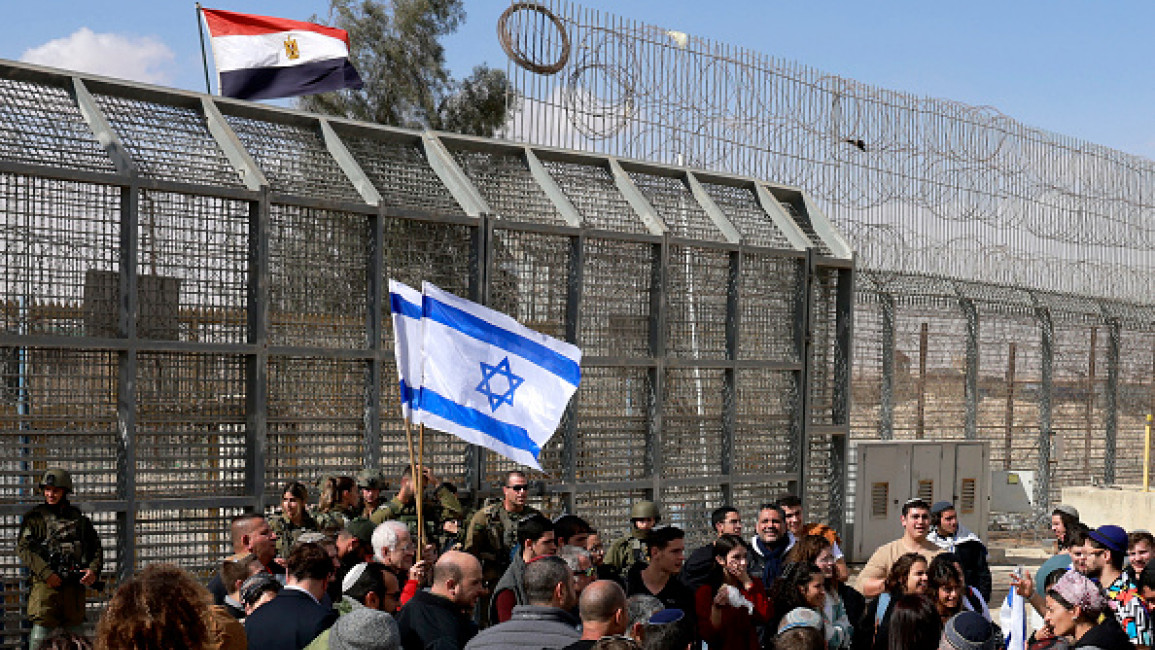Israeli media accuses Egypt of stalling new Israeli ambassador's appointment as 'punishment'
Several Israeli news outlets accused Egypt of hampering the appointment of Israel's new ambassador to Egypt, Uri Rothman, since his predecessor's term had ended last month amid increasing tension between Cairo and Tel Aviv.
Since Israel's former ambassador to Egypt Amira Oron returned home, no other diplomat assumed the post, which was initially expected to be filled by Uri Rothman, but he is still in Israel waiting to be officially approved by Cairo.
Israeli media outlets reported that Egypt had been pressuring Israel to compromise on unresolved issues—particularly Israel's insistence on staying at the Philadelphi corridor (also known as "the Salah al-Din corridor").
Israeli i24 reported, citing an unnamed source, as claiming that Egypt's reluctance to approve Rothman’s appointment "deliberately" intended to "punish Israel," noting that Cairo had rejected to receive his recommendation letter in the first place.
Israel's Foreign Ministry denied the news reports in statements to Israeli news outlets, describing them as being "inaccurate," while the Egyptian Ministry of Foreign Affairs did not officially comment so far nor offer clarifications.
A former Egyptian senior diplomat did not rule out the Israeli media claims.
"Egypt may have used this diplomatic tool to embarrass Israel and gain influence, even, temporarily," the senior diplomat remarked to The New Arab, on condition of anonymity due to the political sensitivity of the subject.
"Everything is possible in the worlds of diplomacy and intelligence, where manipulation is quite common. Such tools are not always functional, but they are only expected to buy Egypt some time," added the diplomat.
Despite Israel's genocidal war on Gaza that has claimed at least 40,000 lives, the Egyptian regime treats Israel as a friendly national with strong ties in several fields, particularly economic and security. Meanwhile, most of the Egyptian public opposes normalisation with Israel.
Tensions between Cairo and Tel Aviv escalated in recent months after Israel had overrun the Philadelphi Corridor in May, also seizing control of the Gaza's side of the Rafah crossing, the only exit for Gaza's Palestinian population to the outside world.
By taking control of the corridor and the crossing, Israel violated the decades-long peace treaty with Egypt. The Philadelphi Corridor is a narrow 14-kilometre strip of land covering the entire border between Egypt and Gaza.
Israel has repeatedly accused Egypt that it had allegedly facilitated the smuggling of arms to the Palestinian Hamas faction, running Gaza, through operational tunnels under the corridor, claims denied by Cairo.
Before the Israeli invasion of Gaza in last October, Egypt patrolled its side of the corridor and Palestinian authorities managed the Gaza side as per the terms of the Camp David Accords.




 Follow the Middle East's top stories in English at The New Arab on Google News
Follow the Middle East's top stories in English at The New Arab on Google News
![The US vetoed a UN Security Council (UNSC) resolution demanding a ceasefire in Gaza [Getty]](/sites/default/files/styles/image_330x185/public/2185152251.jpeg?h=7ef8ac04&itok=RpLSj2pu)

![An attack by paramilitary forces in Sudan has killed at least 40 people [Getty]](/sites/default/files/styles/image_330x185/public/2182364341.jpeg?h=a5f2f23a&itok=r8Fkhxdj)